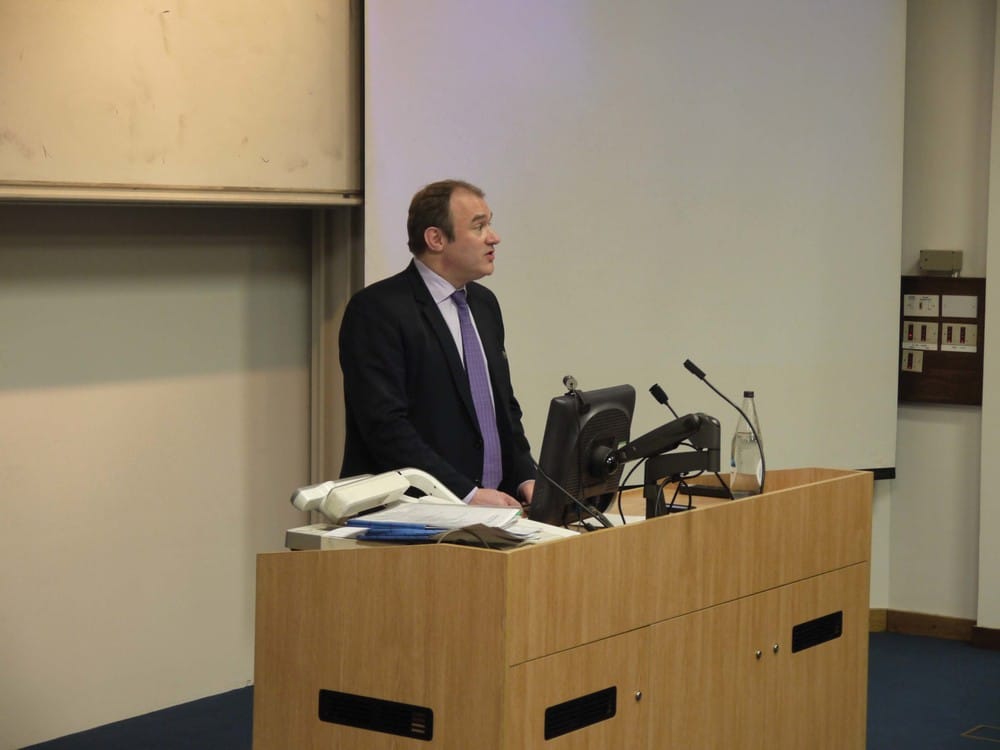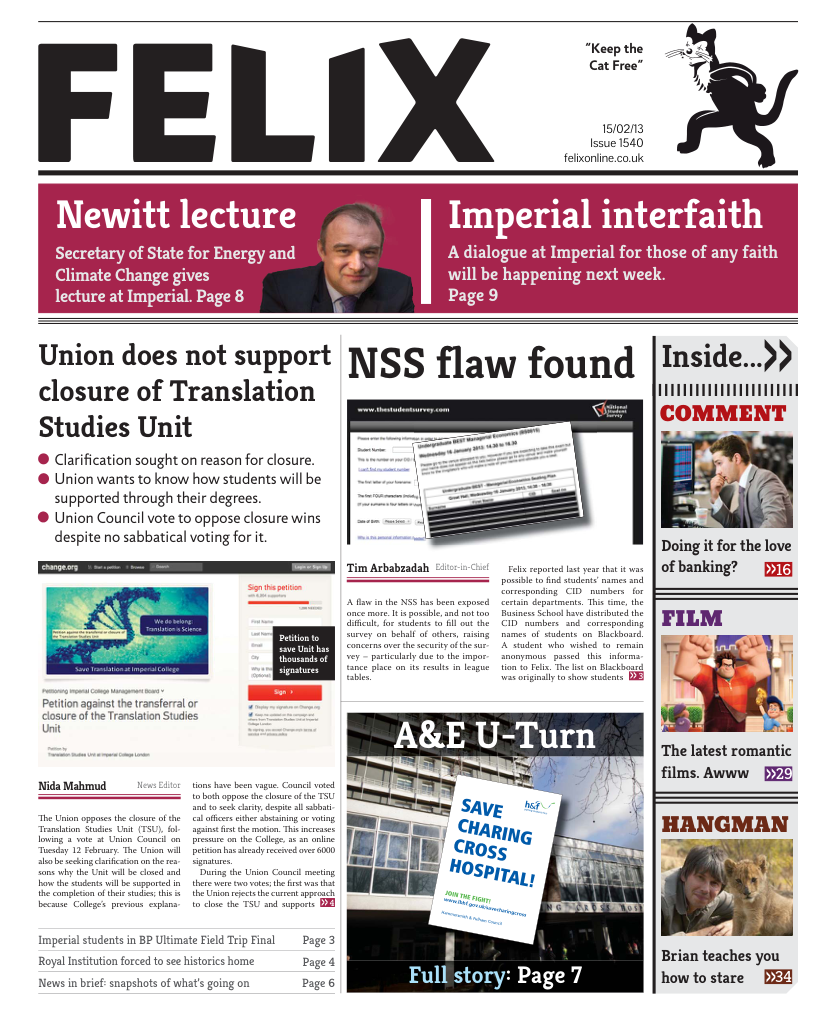Newitt would be interesting
Caroline Wood finally enjoys a lecture at Imperial

he annual Newitt Lecture, hosted by the Chemical Engineering department, was given by Edward Davey MP, Secretary of State for Energy and Climate Change on Wednesday evening. This was the first time that the lecture has been given by a politician – rather than a chemical engineer – a clear signal that the worlds of politics, science and engineering are becoming ever more entwined.
The title of the 2013 lecture was “The Energy Challenge; Technology and Solutions”. Mr Davey’s speech addressed key areas where engineering innovations could help support economic policies and lead to a greener economy.
Confessing that his Chemistry education ended at O-level, albeit with an A, Davey made no apologies about delivering a hearty political speech to an audience of engineers. Boldly, he set out what he believes to be the greatest challenge of our time: to power our country and protect the planet.
In times of political volatility, where world power centres are shifting (by 2035 China and India together will be consuming 30% of the world’s energy) he noted two key realities. The first, that global energy demand will continue to be met by fossil fuels well beyond 2035 – despite only meeting 1/3 of global energy demand overall. And the second, that given this unpalatable practicality, the use of unabated CO2 cannot continue.
The levels of CO2 in the atmosphere are higher than at any point on the last 800,000 years, at least. With older records indicating that historic rises in CO2 caused by volcanic eruptions led to acidification of oceans and extinction of marine wildlife the cost of not acting to mitigate and control climate change is too high. As Stern famously argues, the cost now is significant, but is far outweighed by the long terms costs of inaction.
Davey illustrated the complexities of forming international climate agreements, and urged the students and professors in the audience to “not leave it to politicians”. Davey was insistent that the solutions to the impending climate challenges need to be met by a collaborative effort by society, with innovation, invention and engineering all playing a critical role.
A pragmatic 3-pronged approach suggested included saving energy through improving energy efficiency, lowering the cost of low carbon technologies, and investing broadly in research and development. All will no doubt be essential parts of the solution. However, Davey more ambitiously challenged the audience to focus their research efforts on 3 key emerging fields: Carbon Capture and Sequestration, Energy Storage and Hydrogen.
Given the continued use of fossil fuels for the foreseeable future is highly probable, improving Carbon Capture and Sequestration techniques will be crucal in ensuring global CO2 levels don’t rise uncontrollably. Improved methods of energy storage could also be a game changer, with fly-wheels, batteries and electrolysis all noted as areas with potential for significant innovation. Hydrogen was the final area of research that Davey urged more engineers to consider. If it can be commercialised then hydrogen could be a viable component of our future energy mix.
Either way, the premise is the same. Carbon needs to be designed out of the power train. And there is still a huge gap between where we are and where we need to get to.
Davey’s final remarks were about how his experiences as a student led to his interest in climate change and the environment. He told the audience how he extensively read books on the subject, such as Jonathon Porritt’s Seeing Green, and was also part of student ecology group at Oxford university before helping transform it into to more resolute ‘Green Action’ group.
The resounding message from this speech was that passion and politics alone will not be enough to address the climate problems we are facing. There needs to an unprecedented effort from governments, engineers, scientists and the rest of society if we are to truly surmount “the greatest challenge of our time”.
Many thanks to William Brown and Theodor Bergstrom for organising the event.
Newitt Lecture
The Newitt Lecture is an annual event given in the name of Dudley Newitt. Newitt was a keen Chemist from a young age and although his career was interrupted for a number of years due to the First World War, he later gained a Bachelors degree in chemistry from the Royal College of Science – now part of Imperial. He then went on to do a PhD and DSc before becoming a member of founding committee of the British Institution for Chemical Engineers and later being elected as president.
Newitt’s academic achievements continued, as he became a professor of chemical engineering and then the Head of the Department of Chemical Engineering. He was largely responsible for the expansion and improvement of the department, and also helped to restructure the students’ union to better facilitate overseas students. As a result of this, he was elected as Pro-Rector of the College, a post he held until he retired in 1961.
Newitt was an extraordinary individual, advocating the use of diversity to solve problems. With this in mind, the topic of climate change seemed fitting for the 2013 lecture – a challenge that needs to be confronted not only by engineers and scientists, but society as a whole.







